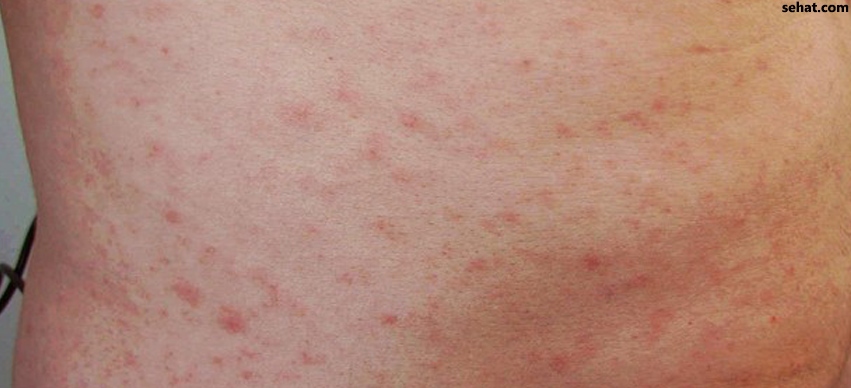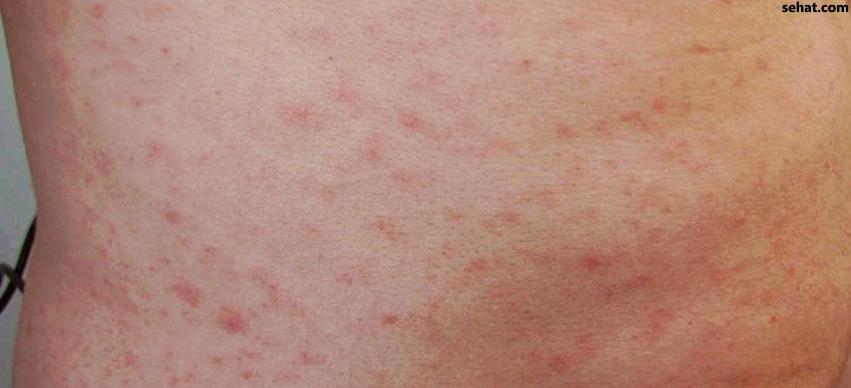Nanoparticle Therapy – An Emerging Cancer Treatment
5 Min Read


Once a person gets syphilis, the bacteria can stay in your body for decades without showing any signs of activity. In the early stages, it can be cured with antibiotics. However, if you do not seek treatment, it can seriously damage your brain, heart and other vital organs. At this stage, this sexually transmitted disease becomes life-threatening. This is why it's imperative to practice safe sex and if you feel that you may have been exposed, have engaged in risky sexual behavior or display any symptoms get tested. You can test for syphilis using an at home STD test kit or visit your healthcare provider who will order the test for you. The open syphilis sores can make it easier for you to contract HIV, which is the virus responsible for AIDS.
When it comes to syphilis, there are different stages. Hence, there are different symptoms for each stage. It is important to note, the stages may overlap. Also, you may not have any noticeable symptoms even if you have the infection.
Here some of the symptoms of this sexually transmitted disease.
Primary Syphilis: This is when the first sign of the disease occurs. You will get a small sore, which is known as chancre and develops three weeks after being exposed to the infection. The sore appears at the very same spot where the bacteria made its way into your body. Majority of people develop just one sore, but there are some who can get multiple sores. The sore is painless and may develop inside the rectum or vagina. Hence, it is often not spotted. The sore heals on its own after about six weeks.
Secondary Syphilis: After the sore heals, within a few weeks, the person gets a rash that usually begins on the trunk and spreads to the whole body, including the soles and palms. However, the rash does not itch. It may come with wart-like sores in the genital area or mouth. This is the stage where some people may get fever, swollen lymph nodes, sore throat and muscle pains. Sometimes these symptoms go away after a few weeks or they may come and go for a year.
Latent Syphilis: In case the infected person does not seek treatment, the disease progress to this stage, where there are no symptoms. This stage can last for several years. In some people the symptoms do not recur, but in others it progresses to the next stage.
Tertiary Syphilis: This is the late stage of syphilis and about 15 to 30 percent of the infected people, who do not get treated for the disease, progress to this stage. During the tertiary stage, nerves, brain blood vessels, joints, bones, liver, heart and eyes get damaged.
Pregnant women, who have syphilis, can spread the disease to their unborn child via the placenta or at the time of childbirth. The newborn baby will not have any symptoms, though some babies get a rash on the soles and palms. Later on the baby may suffer from saddle nose, teeth deformities and deafness.
Syphilis is caused by a bacterium known as Treponema pallidum. This bacterium usually finds its way into the body when an infected person with chancre has sexual intercourse with an uninfected person. Syphilis is spread during the primary and secondary stages, but it also can be transmitted during the early part of the latent stage.
On rare occasions, the disease may get transmitted during close contact, such as kissing, with an infected person, who has a chance. You cannot get syphilis in swimming pools, hot tubs or using the same toilet, clothing or utensils as the infected person.
There many ways to diagnose syphilis, so if you suspect you have it, visit a qualified doctor immediately.
Syphilis can easily be cured in the early stages using penicillin. This is an antibiotic, which can kill the bacteria that causes the disease. In case you are allergic to penicillin, the doctor will use another antibiotic.
Typically, a single injection of penicillin is more than sufficient to stop the progress of the disease, as long as you have been infected for under a year. If you have the infection for over a year, you will need more doses of the antibiotic.
When you receive the first dose of the antibiotic, you will experience nausea, aches, chills, fever and headache. This is a reaction to the treatment and is known as the Jarisch-Herxheimer reaction. It usually goes away in a day.
After being treated for syphilis, you will need to regular blood tests and examinations to ensure you have not got reinfected. Do not have sexual intercourse until your entire course of treatment is over and the doctor informs you that you are free of the infection.
To prevent getting syphilis, you should not have multiple sex partners. It is best to have a monogamous relationship or abstain from sex altogether. Make sure your sex partner is infection-free.
Always use a condom when having sex, as this reduces the chances of getting infected. This method is most helpful if the condom covers the syphilis sore.